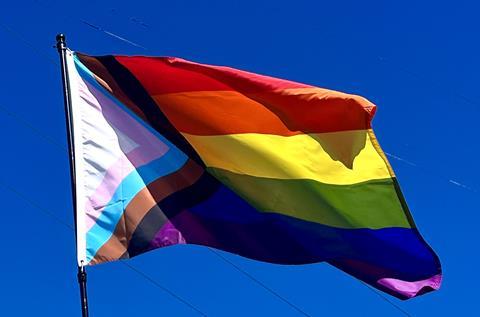Savitri Hensman responds to Christian Concern’s claim that Pride flags represent an “anything-goes” approach to sex

Open disagreement makes some people uncomfortable. When the topic under discussion is deeply personal, it can be distressing. Yet vigorous debate - both in the Church and in wider society - can be healthy. It allows us to consider other points of view, and aids our quest for truth.
If we do not debate with those we disagree with, it is easy to slip into being inaccurate about their opinions and misrepresent their position. This happens on both sides in debates around sexuality and gender, especially among Christians.
A wider meaning
In a democracy, Andrea Williams is rightly free to argue against the flying of ‘Progress Pride’ flags by Westminster Council. But her claim that “Pride flags stand for an anything-goes approach to sex. Consent is all that matters”, is incorrect.
I am a lesbian who was in a monogamous lifelong relationship for 24 years. Since my partner died of cancer, I have been celibate. We had no “godly offspring” but for almost all our years together, we were carers for adults - as I still am, in addition to paid work and volunteering.
Pride flags can signal welcome and respect, rather than a view on sexual morality
The Pride flag, in its various iterations, means different things to different people. I sometimes wear items bearing the Progress Pride symbol, or the older rainbow flag. To me, the black and brown chevrons simply signal that some of us are also people of colour, which has sometimes gone unrecognised.
I believe that all humans are made in God’s image and that, for Christians, shared identity in Christ can break down barriers of hostility and inequality, including on grounds of ethnicity, sex and class (Galatians 3:27-28).
Making space for complexity
On issues of gender, I think that being attentive to one another’s experiences, avoiding a one-size-fits-all approach and making space for complexity are preferable to culture wars.
I am aware of the experience of many transgender people of my own or older generations. Their sense of self was strongly discouraged by the surrounding culture and, as a result, suppressed or struggled in vain to change who they were for many years in ways which damaged them and sometimes others. I would not want a return to such a time.
Welcome and respect
I accept that while some Christians are non-affirming of same sex attraction or the concept of transgender identity, they are nevertheless caring and committed to human rights for all. Mislabelling non-affirming Christians as ‘hateful’ is wrong and unhelpful. But it is important to remember that serious abuses have and still do occur just because someone is trans, lesbian, gay or bisexual.
The Pride flag, in its various iterations, means different things to different people
Against that background, Pride flags can signal welcome and respect, rather than a particular view on sexual morality. Many people do not mind occasional displays of diversity in public spaces. At Christmas for instance, most non-Christians accept - or even welcome - the singing of Christmas carols, despite disagreeing with our views on the virgin birth. We should learn to live together and to accept one another - even as we hold differing worldviews.
Disagreeing well in Church and society includes recognising the breadth of views and experiences among those on the other ‘side’. This can be difficult in the heat of argument. We probably all fail sometimes, but we should not give up trying.





































3 Readers' comments